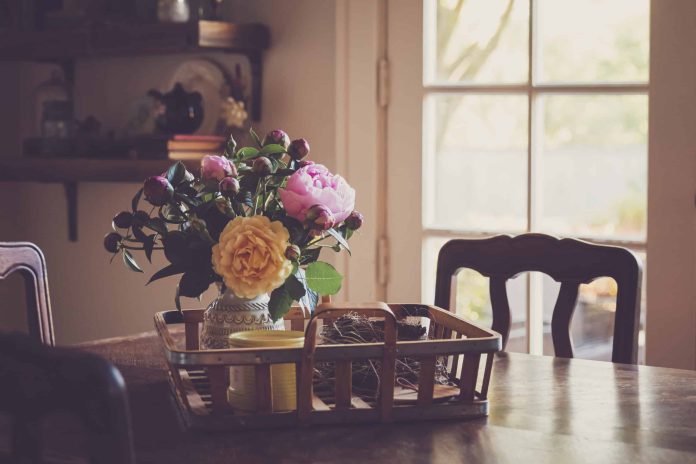“When it comes time for you to leave, try to just slip away without him noticing. Do not make a big deal out of saying goodbye which could confuse him, especially in the beginning.”
That was the advice the nurse manager gave to my family when we moved my dad into a memory unit once his Alzheimer’s became too much for my mom to manage at home. The thought of leaving without saying goodbye made my heart break, but I wanted to do the right thing for my dad so I would visit and then wordlessly walk away, wondering how soon or if he ever noticed I was no longer holding his hand and walking the hallways alongside him. Soon I missed the bear hugs that were always a part of our farewell ritual, so I would begin our visits with them instead. “Dad, I’m going to leave in a little while,” I would say, hugging him when I first arrived. “This is me saying goodbye now in case I don’t have the chance to later.”
One time, about six months into my dad’s stay, I tried to slip away, but he kept following me. I could not make myself leave while he was standing there watching me. A member of staff noticed and tried to redirect my dad, but my dad, who by now rarely spoke out loud, stood his ground and said to her, “leave me alone, I just want to say goodbye to my daughter”. That was all the permission I needed to rush into his arms for that familiar hug, look into his eyes and say “goodbye for now, dad,” which I did at the end of every visit after that.
I said my final goodbye to him as he was taking his last breaths, grateful to be able to be with him in spite of the pandemic. Or at least I thought I said my final goodbye. Minutes after my dad passed away I had to call the funeral director. Saying out loud, for the first time that my dad died felt like I was saying goodbye all over again.
The conversation with the funeral director was just the beginning. The next morning I had to call the rabbi and the cemetery to make burial arrangements. There were uncles, aunts and cousins to be notified. Each call, each time I had to repeat the words ‘my dad died’, was like re-opening a goodbye wound that was barely beginning to heal. I began to wonder if it ever would.
Once I came home from the funeral I had to tie up my dad’s affairs, calling his bank, insurance, credit card and several other companies to tell them my dad died. Over and over again I found myself saying goodbye to my father for what I thought was the last time and each time was as painful as those early days in the assisted-living memory unit and the day he died.
For the first few weeks after my dad passed, I experienced pop-up grief that would come as I was driving to the grocery store or gassing up my car or making dinner. A flash memory of my dad – teaching me to check the oil in my first car or standing by the stove chopping onions for his famous home fries – would hit me and instantly tears would flow. And with each time, I felt another painful goodbye. Desperate for help, I finally asked my dad to send me a sign to let me know that he was okay and that I would be okay, and maybe my pop-up grief and ‘goodbye’ pain would stop.
In early January a friend sent me a calendar she made to celebrate the new year. As soon as it arrived I looked through and noticed she added a little saying to one day of each month. On January 1st she put ‘Happier New Year’. On February 23rd, ‘It’s a glorious day’. I skipped to June to see the message for my birth month, and saw ‘Someone is missing you’ on the 17th, which happens to be my dad’s birthday. And there he was, popping up to say…hello.
***
Have you pre-ordered Thrust?

“Blistering and visionary . . . This is the author’s best yet.” —Publishers Weekly (starred review)
***

How lucky you are to have been with your dad in his final moments on earth. I hope you continue to receive other “popup signs”.